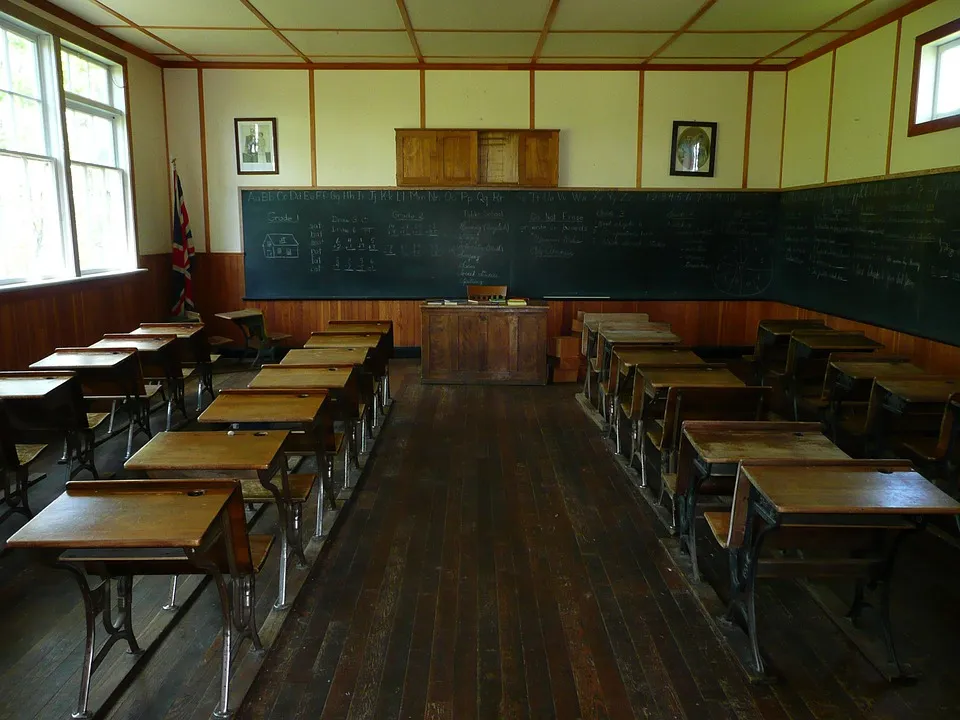This is Part 3 of a multipart series. If you'd like, go ahead and click the links to read Part 1 and Part 2. In this part of the series, I'll address the most common reason people give for their support of compulsory schooling.

If we didn't compel children to go to school, our society would be flooded with uneducated people.
This is the remark I've heard most often when debating the topic of compulsory schooling. And at a cursory glance, it appears to be the strongest argument for leaving education of children in the hands of a government monopoly. People aren't in favor of public schools because they enjoy seeing children be separated from their families. They don't support public schools because they think children ought to have their lives controlled down to the minutest detail. And it's not because they believe children are inferior to adults, and therefore don't deserve to have rights.
No, people support compulsory schooling out of a noble desire to ensure that each and every child gets the same opportunity for education, and a corollary belief that universal free (and compulsory) childhood education leads to a more intelligent, prosperous society.
Before we get into my refutation of this claim, let's take a moment to look at the current situation. I don't know much about education in countries besides my own, but here in the United States, we have had compulsory schooling for almost a century, and yet, our society is flooded with uneducated people.
It's true that most school children do learn the bare minimum in school--such as reading, writing, and basic arithmetic--that will make it possible for them to get at least a minimum wage job once they graduate. But simply knowing how to read and write and do basic math is not the same as being educated.
Too many adult products of public schools lack the thinking and learning skills that would enable them to succeed in life. They can fill out forms, but they can't write a letter. They can follow written instructions, but they don't read books. They can perform addition and subtraction and multiplication in their heads, but they have no idea how to budget. They can parrot a bite-sized political opinion from CNN or Fox News, maybe even paraphrase it, but they are unable to formulate a consistent, cohesive defense of the position. They can use computers, but they don't know how to differentiate a fact based article from a fake or satirical one on the Internet. (They literally have to be told by the major news media which articles are true and which are fake...and of course, they trust the news media implicitly even though each network has clear and ever-present biases. Maybe this comes as a result of being spoon-fed information and conclusions by school teachers during their most formative years?)

There are even many college graduates who fit the above description. Students slog through elementary and high school, constantly discouraged from asking questions or forming an independent thought. By all official standards they are perfectly well educated and ready to go onto university. They passed the SAT! They got a decent GPA! But by the time they enter college, their inquisitiveness is pretty much broken, the enormous human learning capacity reduced to a mechanical output device. Input pre-packaged information, receive pre-packaged response.
What percentage of American society is made up of these people who can read but not think? No one knows for sure, and it would be a difficult, if not impossible task to find out. Self-reporting would be an inefficient method of discovery, since people nearly always believe they are much more intelligent than they actually are. Call me a pessimist, but based on my observations of people in real life and on the Internet, I'd put the figure at about 30-40% and growing by the year. Or maybe that's an optimistic view of things, depending on how far gone you think society already is.
The point is, we've already tried compulsory schooling as a way of extending the benefits of education to the whole of society at every social and economic strata, and it's not working. It does not work regardless of how much extortion money we throw at the problem. It does not work regardless of the curricula being used, or how we draw school district lines, or how well-equipped the science lab is, or whether funding is available for arts and athletics, or whether each student has a school-issued laptop.
Why doesn't it work?
Because people who have no choices cease to grow.
We are cultivating the human equivalent of bonsai trees. Sever each sprouting branch, administer the exact required amount of sunlight and water, trim each leaf until the tree takes on the exact shape you wish for it to have. And the tree stops growing. It has been stunted by micromanagement.

Here's a truth that is perhaps difficult to swallow: Schools, in general, do not positively change outcomes for children. A child's chances of becoming a thinking adult are, to a very large extent, dependent upon whether or not she is raised by thinking parents. But put a child of thinking parents into a curiosity stifling, creatively stunted environment like a public school, and her chances of growing into a thinking adult begin to diminish. For the child of non-thinking parents, it's almost a guarantee that, after 12 years in public school, her synapses will never fire on a level beyond rote memorization and the regurgitation of facts and opinions.
There are outliers, of course--children of non-thinking parents who break the mold, who keep their curiosity and passion for discovery intact and who turn out to be intelligent adults. But this happens despite compulsory schooling, and not because of it. Somewhere along the way, these individuals likely learned some kind of coping mechanism to carry them through the traumatic school experience. Maybe it was glomming onto a favorite teacher. Maybe it was daydreaming. Maybe it was basketball. Maybe it was skipping school, neglecting homework, and only showing up to pass the tests.
So what would improve educational outcomes for children, both those from thinking and non-thinking families? Freedom. Choice.
Bottom line: there is no possible education system that would rule out 100% of poor outcomes. So instead of attempting to achieve the impossible, it should be our goal to make educational opportunities more abundant and varied. To increase the probability that each family can find and access the type of education that works for them and their children, whether that's a small community school, an online school, a once-a-week tutor, an outdoor school with no textbooks, an apprenticeship, or some other amazing thing that no one has thought up yet, that never will be thought up until the educational service market is freed. This is not achievable under a monopolistic system like the one we have, and it is not possible if schooling remains compulsory.

If you're hungry, the market provides you an uncountable plethora of options to fill your belly. You can cook a healthy dinner at home, or you can heat up a freezer pizza. You can grow food in your back yard or buy it from the corporate grocery store, the local co-op, or the farmer's market. You can go out to eat at a fancy restaurant, a fast food place, a taco stand, or a cafe. And within each of these options are a multitude of sub-options. You can choose a different option for each meal! All of that choice, and that's just for a relatively inconsequential decision--a single meal is not likely to impact your entire future. So if you choose wrong, you have near-infinite opportunities to make a better choice in the future. No one forces you to eat. The government doesn't provide you with a predetermined set of three choices for each meal. You'd think, according to the logic used by compulsory school advocates, that all this choice would result in a hunger pandemic. But surprisingly few people go hungry in a free market food system. For those who are most vulnerable in society, there are soup kitchens and food pantries and other philanthropic solutions, just as there would be charitable schooling options for the poorest in a free market education system.
In the absence of the public schooling monopoly, would there still be uneducated people? Undoubtedly, yes. But I and my many fellow freedom advocates believe that the impact of maleducation would be dramatically lessened by the increase in choice. Remember those bonsai trees? Compulsory schooling produces uneducated adults by design. Public schools were never meant to produce an educated populace. They were meant to produce factory workers, capable of running machines, filling out forms, and following orders, but not prone to too much independent thought or questioning of authority.
With the advent of the Internet, true education is now more accessible and more affordable than ever. If ever there was valid reasoning behind forcing children into industrial schools, it has since expired. In the west, we literally have a whole world of information at our fingertips, and even the poorest can afford access to it. But we can't expect future generations to take advantage of this gift if we stick them in compulsory schools that kill their learning potential.
I'm not sure if I'll be posting a Part 4 to this series. It depends on what you have to say in the comments section. So let me know if there are any aspects to this topic that you think I've missed, or should explore more thoroughly.
I love you, Steemit!
Hi! I'm Leslie Starr O'Hara, but my friends call me Starr. I live in the mountains of North Carolina and I am a FULL TIME WRITER who doesn't wait for the muse to show up before getting to work! I write humor, essays, and fiction here on Steemit and elsewhere.